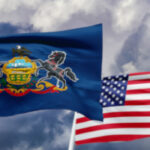The Lithuanian Gaming Control Authority has demanded that all illegal offshore gambling operators cease their operations. Those who refuse to comply with the country’s gambling laws risk getting blacklisted for the time being.
The Regulator Combats Unlicensed Gambling
According to the regulator and the local rules on gambling, all online wager-oriented platforms should be licensed before making their offerings available to customers in Lithuania. The Gaming Control Authority will not hesitate to add offshore violators to its backlist and ban them from the country.
Blacklisted operators will be considered illegal. On top of that, the regulator will do everything in its power to bar them from the country. To this end, the Gaming Control Authority will prevent payments to such sites and will use domain name system blocking to stop any Lithuanian IP from accessing a blacklisted site.
The authority has been working to prove its point and show that it cares for the integrity of the local gaming ecosystem. Recently, the Gaming Control Authority issued a warning again UAB Baltic Bet which had offered an illegal promotion to its users. The regulator refrained from issuing a severe punishment at the time.
In October, the Gaming Control Authority added several Slottica-branded sites to its blacklist. Slottica’s main site had been banned for a while but the operator opted to take action against all sites operating in its name.
The Authority’s Actions Are a Part of a Tendency
The regulator’s actions mirror those of numerous other European countries who have been determinedly trying to limit the negative impact of having unlicensed iGaming operators run amok.
A little bit over a week ago, the Swedish government also spoke on its decision to tighten its rules. In an approach quite similar to that of its Lithuanian counterpart, the Swedish regulators think of blacklisting perpetrators, blocking payment methods, and banning sites. A few days prior, the Ukrainian operators gave offshore sites an ultimatum to cease their operations within three days of the announcement. In September, the Dutch authorities also vowed to combat unlicensed iGaming sites that may damage the country’s fresh gambling ecosystem.
The European countries seem bullish on keeping the integrity of their gambling markets and eliminating unlicensed influence.
As for Lithuania, this isn’t the whole of its ongoing gambling talks. According to the country’s rules on gaming, online platforms should either have a land-based hub or have a land-based partner in the country. This, however, is set to change as the country’s government has approved at first reading a new license for online-only operators.
The change isn’t official yet, but should it go live, it will reshape the gaming landscape in the country. This might be a part of what pushed the Gaming Control Authority to take more action against unlicensed platforms.




